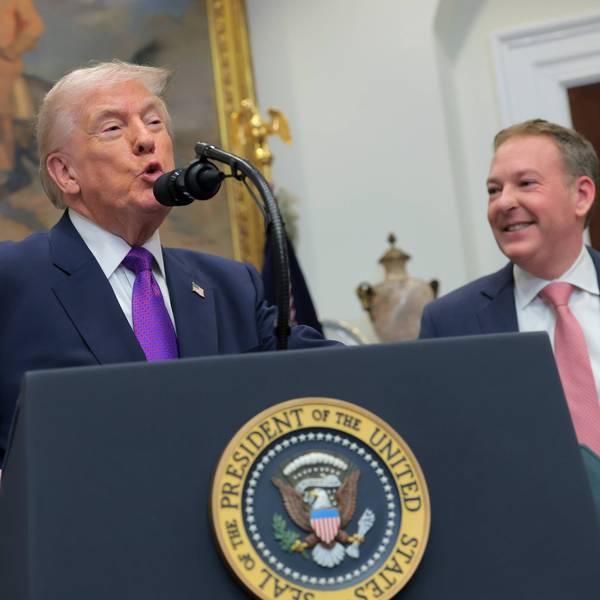The Trump administration has already taken aim at a number of Obama-era environmental rules that protect the public water supply and safeguard children from dangerous pollutants at the behest of Big Oil. Now, he is trampling the environment to make good on one of his central campaign promises: a wall along the U.S.-Mexico border.
"Trump wants to scare people into letting him ignore the law and endanger wildlife and people."
--Brian Segee, Center for Biological Diversity
The Department of Homeland Security (DHS) announced on Tuesday that it would waive a number of environmental regulations "in order to expedite building security-related barriers and roads along the nation's border with Mexico near San Diego," Reuters reported.
"Environmental impact studies generally are required under federal law for building on public lands," Reuters added, "but in this case the waiver will eliminate a study."
Last week, the House approved a spending package that included $1.6 billion of funding for Trump's border wall, which immigrant and refugee rights groups have denounced as "xenophobic" and "fueled by hate."
Critics had similar words for the DHS announcement on Tuesday.
Though President Donald Trump has framed his wall proposal as a national security measure, green groups have argued that it will do little to improve public safety. It will, however, have a devastating impact on wildlife and the environment, according to recent research.
"Bulldozing beloved wildlife refuges won't make us safer, but it will enrage people across the country," Brian Segee, an attorney with the Center for Biological Diversity, said recently.
"Trump wants to scare people into letting him ignore the law and endanger wildlife and people," Segee added on Tuesday. "Trump's wall is a divisive symbol of fear and hatred, and it does real harm to the landscape and communities."
In a statement, Sierra Club denounced the Trump administration's sprint to undercut environmental rules in order to move forward with his "lawless border wall and mass deportation agenda" as "absurd" and destructive.
"A decade of waiving environmental, historic, and cultural protections for sections of the wall already built has shown that doing so only causes harm to local communities, wildlife and wild places," concluded Dan Millis of Sierra Club's Grand Canyon Chapter Borderlands Program.




